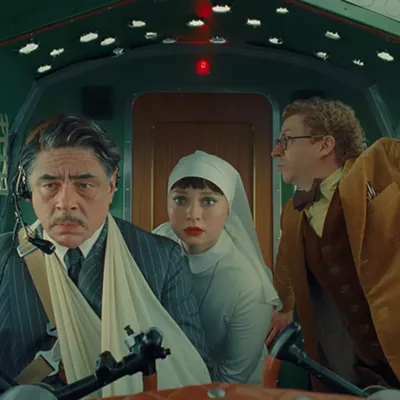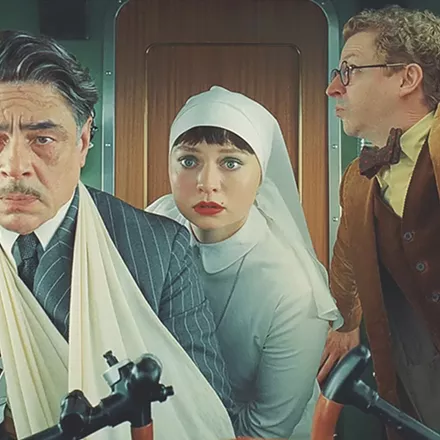The term "Cage Rage" is fondly used by fans of the over-the-top acting style that Nicolas Cage sometimes deploys in his film performances, usually in movies that feature extreme violence and explore deranged personalities. There's so much unhinged fury as his eyes bulge and he screams furiously. Cage told Indiewire in a 2018 interview that his technique is "all very thought out and carefully planned" and that he finds it "frustrating" that those performances are often detached from their cinematic contexts and edited by fans into long montages of, well, Cage Rage. They amuse fans. They don't amuse Cage.
So it's easy to see what may have drawn Cage to Dream Scenario, and why he's so profoundly moving in it. If only the film was more deserving of what he's doing here.
Cage plays mild-mannered college professor Paul Matthews, who — for mysterious and unexplained reasons — starts appearing in the dreams of people all over the world. Once it becomes known that the strange bystander everyone is seeing in their dreams is an actual real person, Paul becomes a bit of a media sensation, much to his baffled (but maybe secretly pleased) surprise.
This is not a Cage Rage performance — quite the opposite. Cage is so naturalistic, so down-to-earth that he induces cringes via Paul's awkwardness and his desperation to be liked. His work here is comedic in a dry, subtle, nakedly painful way. And it becomes even more so when Paul's benign presence in people's dreams turns nasty and violent, and suddenly this harmless schlub is a menacing figure lodged in the collective subconscious.
It's explicit that writer/director Kristoffer Borgli wants to examine modern concepts of fame, especially when it is unexpected and unwanted. "How does it feel to go viral?" one of Paul's students asks. But where the filmmaker takes it from there never quite gels. Metaphors don't have to be perfect analogs to be effective, but it seems that even unexpected and unwanted fame is the result of overt actions on someone's part, even if they never wanted those actions to be made quite so public. Just because, say, a surreptitiously shot video of an angry Karen demanding to speak to a manager went viral doesn't mean that it's not an accurate representation of her behavior.
But poor Paul! People are suddenly terrified of him because of things that he didn't do, that he wouldn't do. Paul wouldn't mind recognition for his work: His field is the evolutionary biology of insects, and he has a book about "antelligence" that he'd love to write and get a little bit famous for it, but he's so ineffectual that the book is only the germ of an idea. Paul isn't even a threat to his own procrastinating ineptitude. Cage crafts a palpable misery in Paul's stuckness in his own life, in his befuddled benign neglect of himself. This is a horror movie about the insipid inability to follow through on one's ambitions.
The violent dreams Paul appears in are practically parodies of memeified Cage Rage. Surely the actor's own displeasure with how his work is sometimes received fuels his portrayal of both dream Paul's outrageous violence and actual Paul's bewilderment. But that's tangential behind-the-scenes color, and not anything to do with what Dream Scenario is actually about.
Sadly, the longer Dream Scenario goes on, the less confident Borgli seems about any of it. The only vibe the movie gives off — and this sneaks up until it felt like an unpleasant certainty — is one not of the vagaries of fame, but the terror too many men have now that our society is beginning to hold them to account for their bad behavior (such as the #MeToo movement).
But of course, #NotAllMen. Not Paul! He's harmless, as we can plainly see. He wouldn't hurt a fly. And yet people — men as well as women — are suddenly afraid of him merely because they imagined him doing something awful. It's not right. It's unfair!
Paul doesn't deserve what he gets here. The way people around Paul — such as his wife, Janet (Julianne Nicholson) — react to the whole situation feels wildly implausible. Either the calculus of Borgli's tale is off and he derailed his own intriguing concept because he didn't know where to take it... or he really is saying, "Won't someone think of the trauma of men — innocent men, I tell you! — who are being subjected to — (gasp) consequences — now that women are speaking out?!" And that takeaway is not very dreamy. ♦



























